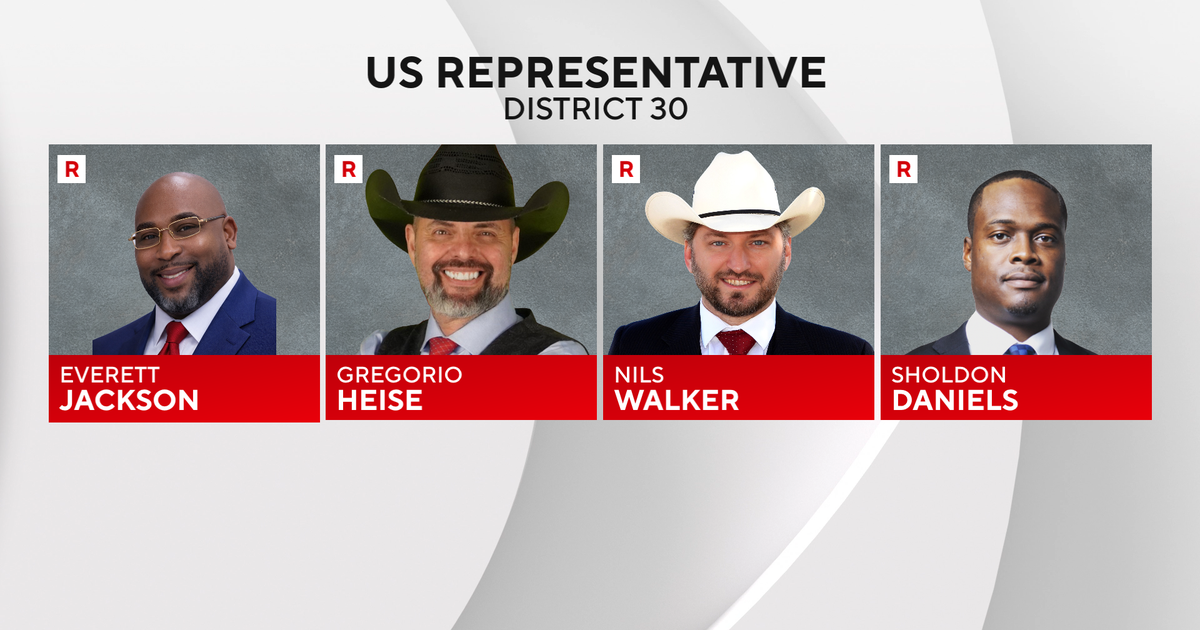Abortion rights supporters score midterm victories in at least 4 states
Washington — Voters in at least four states voted to protect abortion access through measures on the ballot in Tuesday's midterm elections, CBS News estimates, scoring victories for abortion rights advocates who worked with urgency to preserve the right to end a pregnancy in the wake of the Supreme Court's decision overturning Roe v. Wade this year.
Abortion rights were directly on the ballot in California, Michigan, Vermont, Kentucky and Montana, through either proposed amendments to state constitutions or, in Montana, legislative referendum. In California, Michigan and Vermont, voters decided to enshrine abortion rights in their respective state constitutions. The ballot measures in Kentucky and Montana sought to limit abortion access, but CBS News has not projected a final outcome on the referendum in Montana as of Thursday. Kentucky voters rejected their state's ballot initiative to limit abortion rights.
Concerns about abortion access reached their apex after the Supreme Court's conservative majority in June wiped away the constitutional right to an abortion, leaving the issue to elected officials in the states. To ensure abortion rights are protected, supporters are pursuing a multi-pronged campaign that includes state legislatures, state courts and an appeal directly to voters through ballot measures.
Buoyed by the defeat in Kansas of a proposed constitutional amendment removing the right to an abortion from the state constitution, other state lawmakers and activists are already laying the groundwork for ballot initiatives in more states in 2024.
For the voters in the five states that weighed in on abortion this Election Day, here's how each of the proposals fared:
Vermont's Article 22: Approved
Vermont's measure proposed an amendment to the state constitution establishing the right to "personal reproductive autonomy."
With its approval, Article 22 will be added, reading: "an individual's right to personal reproductive autonomy is central to the liberty and dignity to determine one's own life course and shall not be denied or infringed unless justified by a compelling state interest achieved by the least restrictive means."
The constitutional amendment bolsters abortion rights in the state, as abortion is already legal through legislation signed by the governor in 2019 that prohibited the state from interfering with or restricting a person's choice to end a pregnancy.
Michigan's Proposal 3: Approved
The projected success of Michigan's measure is a resounding win for abortion rights supporters in the state, who spearheaded a signature drive to get the initiative on the November ballot and went to the Michigan Supreme Court after the state's Board of Canvassers deadlocked on allowing it to be added.
With its projected approval, the state constitution will be amended to:
Establish the right to make and carry out all decisions about pregnancy, among them prenatal care, childbirth, postpartum care, contraception, abortion, and infertility;
Allow the state to regulate abortion after fetal viability, generally between 22 to 24 weeks of pregnancy, but not prohibit abortion if it is medically needed to protect a patient's life or physical or mental health;
Forbid prosecution of an individual for exercising the new established right to reproductive freedom or an individual helping a pregnant women;
Invalidate existing state laws that conflict with the constitutional amendment
While Michigan Gov. Gretchen Whitmer, a Democrat who is also on the ballot, supports abortion rights, the state has on the books a law from 1931 that makes performing an abortion a felony in most instances. The ban lay dormant for nearly 50 years after the Supreme Court in 1973 established the constitutional right to an abortion, but the high court overruled its Roe decision in June, paving the way to allow the state's 1931 abortion law to go into effect.
Though Michigan Attorney General Dana Nessel vowed not to enforce the pre-Roe ban, Planned Parenthood of Michigan and an abortion provider in the state filed a lawsuit in April arguing the 1931 law is unconstitutional. In September, a state court judge invalidated the 90-year-old ban, finding it violated the state constitution.
California's Proposition 1: Approved
The ballot measure calls for the California Constitution to be amended to include the right to reproductive freedom, which includes the right to choose to have an abortion and the right to contraceptives.
Voters' approval of Proposition 1 gives the green-light for the new section, which reads, "The state shall not deny or interfere with an individual's reproductive freedom in their most intimate decisions, which includes their fundamental right to choose to have an abortion and their fundamental right to choose or refuse contraceptives."
Abortion would've remained legal in California even if voters rejected the ballot initiative. The state supreme court recognized the right to an abortion under the state constitution in 1969, and abortion is also protected under state law.
Kentucky's Constitutional Amendment 2: Rejected
The question before Kentucky voters was whether to amend the state constitution to declare it does not protect the right to an abortion and to prohibit state funding for abortion, and the measure was defeated, according to CBS News projections. Its rejection is a major victory for pro-abortion rights groups in a conservative state where a "trigger" law banning nearly all abortions took effect after the Supreme Court overturned Roe.
The near-total abortion ban was challenged in state court, and the Kentucky Supreme Court is set to hear arguments in the dispute brought by abortion clinics in the state this month.
If the measure had been approved, the new section added to the Kentucky Constitution would've read: "to protect human life, nothing in this Constitution shall be construed to secure or protect a right to abortion or require the funding of abortion."
Montana's legislative referendum on the Born Alive Infant Protection Act: No projection
The legislative referendum before Montana voters asked them to adopt the Born Alive Infant Protection Act, which declares infants born alive, including after an abortion, are legal persons. The bill also imposes criminal penalties on health care providers who do not take "medically appropriate and reasonable actions" to preserve the lives of these infants.
The measure states a born-alive infant is one "who breathes, has a beating heart, or has definite movement of voluntary muscles, after the complete expulsion or extraction from the mother." The proposal also establishes that a "born-alive infant is entitled to medically appropriate care and treatment."
The "no" vote was leading as of Wednesday morning, but CBS News has not characterized the result.
If voters approve, the law would take effect Jan. 1. Medical providers found guilty of violating the measure would face a fine of up to $50,000 or up to 20 years in state prison.
A 2016 analysis from the Centers for Disease Control and Prevention examining infant deaths for the 12-year period from 2003 to 2014 where the death certificate mentions the code for termination of pregnancy found that 143 "could be definitively classified as involving an induced termination."
The terms reported on death certificates that indicate an induced termination of pregnancy range from abortion for maternal medical reasons to attempted self-abortion to elective abortion to induced loss of pregnancy.
Additionally, there are existing laws on the books at the federal and state levels that would protect infants as soon as they're born and would likely apply to medical providers who withhold care.
Under Montana law, abortions can still be performed up to fetal viability, and the state supreme court in 1999 found the state constitution's right of individual privacy includes a right to "procreative autonomy" that protects the right to an abortion.
While the state legislature enacted numerous abortion limits in 2021, including a 20-week abortion ban, restrictions on medication abortion, and a requirement for an ultrasound, the Montana Supreme Court in August upheld a lower court ruling that temporarily blocks the three restrictions while proceedings continue.



